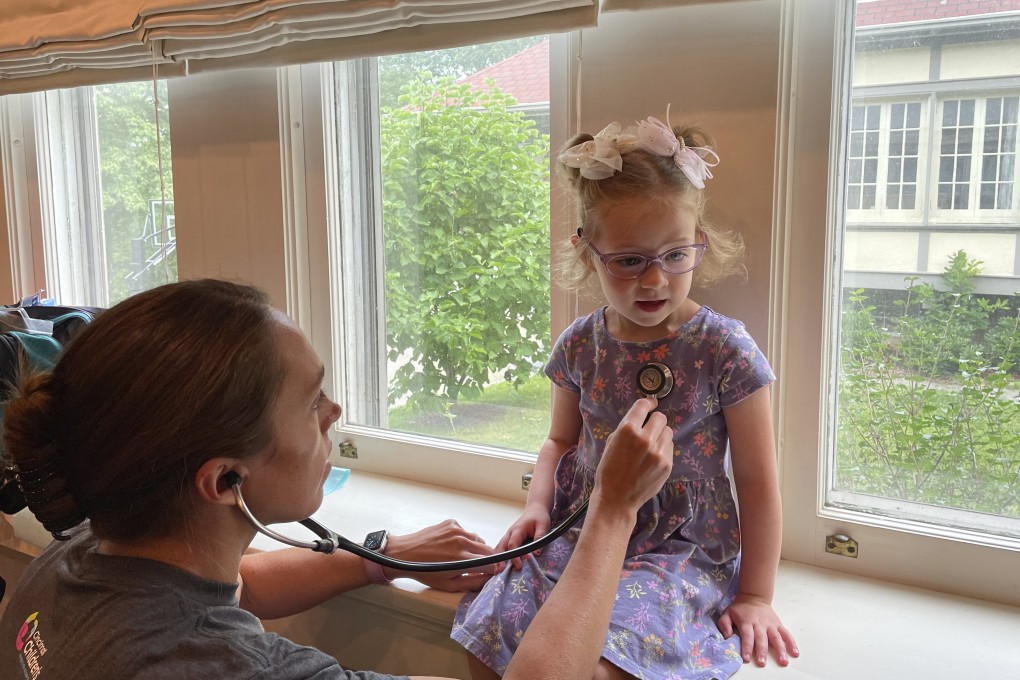How whole genome testing saved the life of a baby with a rare disease, and why such tests could help millions more with rare genetic disorders
- Whole genome testing screens more genes than targeted tests and is more effective at detecting genetic disorders, as it did in a baby with a rare blood disease
- Doctors and researchers think the testing method could be used to diagnose rare diseases in millions of children – although it is more expensive

Brynn Schulte nearly died twice when she was a baby, at one point needing emergency surgery for massive bleeding in her brain.
No one knew what was wrong until a test that looked at her genetic blueprint found a rare bleeding disorder called factor XIII deficiency in an early diagnosis that saved her life.
“You have this hopeless feeling when you don’t really know what’s going on,” her father, Mike Schulte, says. “Casting a wide net made a world of difference figuring this out quickly and getting her the right care she needed almost immediately.”
Brynn, now four, got the genetic testing as part of a clinical trial, the results of which were recently published in the Journal of the American Medical Association.
Whole genome tests are nearly twice as good as narrower tests at unearthing genetic abnormalities that can cause disease in infants – the study found 49 per cent of abnormalities, compared to 27 per cent with more commonly used tests targeting particular types of genetic diseases.
Whole genome tests could negate the need to do several narrowly targeted tests on babies, which still might not find the disorder.